
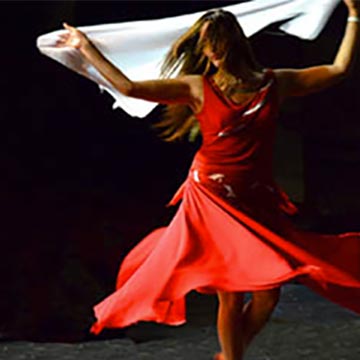
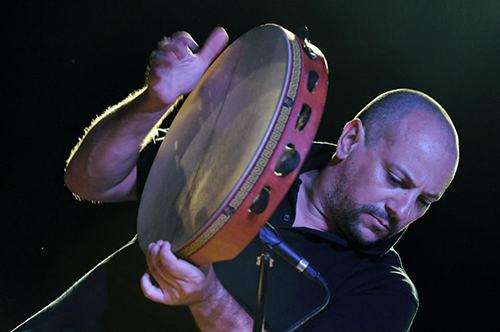
|
|
Pizzica as DancePizzica is a traditional dance form that has its roots in the Salento region of Puglia. The pizzica dance is highly expressive. The movements are energetic and passionate, with a strong component of improvisation. The dancers often twirl, jump and approach each other in a game of seduction and challenge. The interaction between the dancers is essential and the dance space becomes a stage where stories of love, conflict and reconciliation take place |
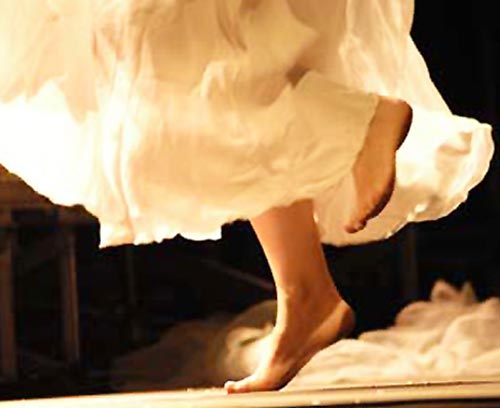
1.The Fencing Dance: Pizzica a scherma |
Origins and Meaning of Pizzica a Scherma The fencing dance, also known as "pizzica a scherma" or "pizzica dei coltelli", is a particularly lively and competitive form of dance. Originally, this dance was performed by men and was characterized by martial symbolism. Simulating a fight, the dancers challenge each other in a game of skill and dexterity, evoking the ancient traditions of chivalry and war |
2. The Courtship Dance:
|
Origins and Meaning of Pizzica di Corteggiamento The courtship dance is one of the most romantic and symbolic forms of pizzica. This dance represents a loving dialogue between a man and a woman, using movements and gestures that symbolize attraction, desire and seduction. It is a form of expression that allows participants to express their feelings in a public but stylized context |
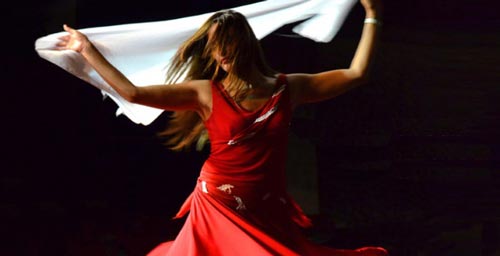
|
|
Performance and Style of Pizzica di CorteggiamentoDuring the courtship pizzica dance, the two dancers rhythmically approach and move away, following the rhythms of the music. The woman often waves a handkerchief, a symbolic element that represents her consent or refusal. The movements are fluid and sensual, with turns, jumps and crossed steps that create an atmosphere of tension and intimacy. The courtship pizzica often culminates in a symbolic embrace, which can represent the union of two hearts |
3. Pizzica:
|
Origins and Meaning of Pizzica dance among WomenThe pizzica danced among women is an expression of solidarity and female connection within the community. In the past, this dance was often performed during parties and celebrations, where women would join in a circle to dance together, creating a moment of shared joy and mutual support. This variant of the pizzica reflects the importance of social and family bonds in the rural context of Salento |
|
|
Execution and Style of the Pizzica Danced among WomenIn the dance between women, the movements are coordinated and harmonious, creating a sense of unity and cohesion. The dancers hold hands or approach each other in gestures of complicity and affection. The music, with its pressing rhythm, encourages the participants to move in unison, strengthening the sense of community. This dance is characterized by greater lightness and less competitiveness than the fencing dance, placing the emphasis on harmony and emotional connection |
|
|
The pizzica, with its different variations, is a testimony to the cultural richness and liveliness of the Salento tradition. The fencing dance, with its martial and competitive character, the courtship dance, with its sensuality and amorous symbolism, and the dance between women, with its spirit of community and solidarity, represent three sides of the same coin. Each of these dances offers a unique insight into human life and relationships, revealing the depth and beauty of a tradition that continues to live and evolve |
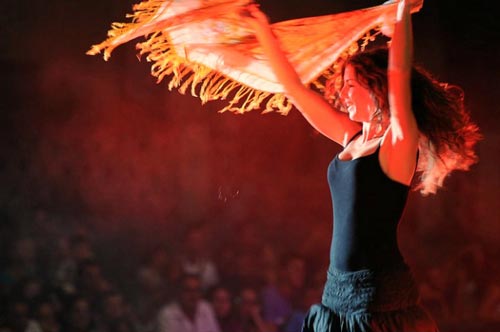 Historically, pizzica was danced during community celebrations and festivals, such as weddings, patronal feasts and other important festivities. It was a form of collective expression that strengthened social bonds and allowed people to share emotions and experiences. Over time, the dance was also associated with the peasant world and rural life, symbolizing the resistance and resilience of a community in the face of adversity
Historically, pizzica was danced during community celebrations and festivals, such as weddings, patronal feasts and other important festivities. It was a form of collective expression that strengthened social bonds and allowed people to share emotions and experiences. Over time, the dance was also associated with the peasant world and rural life, symbolizing the resistance and resilience of a community in the face of adversity
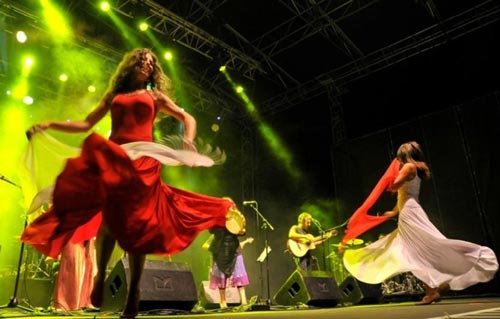
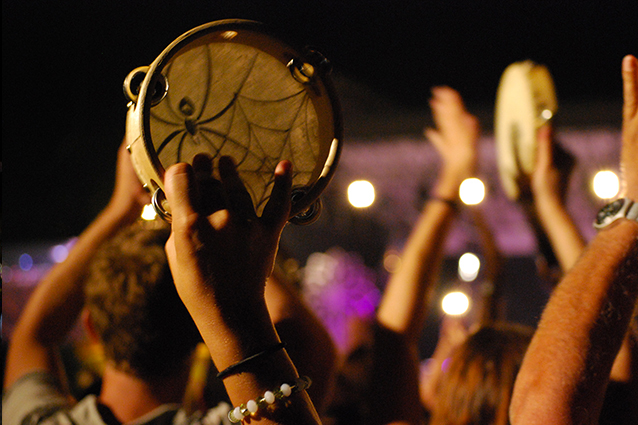
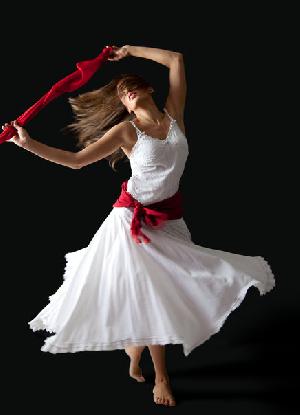 |
Conclusion: Pizzica is much more than just a form of entertainment; it is a living expression of the culture and history of Salento. Their vibrant music and passionate dance continue to fascinate people around the world, keeping alive a tradition that connects the past with the present. While pizzica continues to evolve, its essence remains intact, reminding us of the richness of our cultural heritage and the ability of music and dance to unite us |
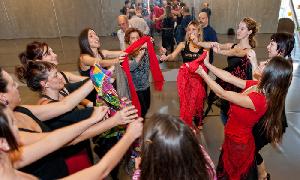 |
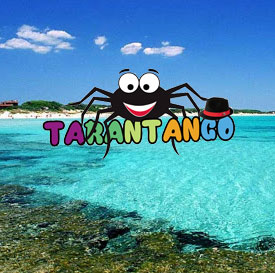 |
Dancing Tango in Rome |
Discover the Tango Allegria event closest to you.
|
Our Community |
Join our group and make new friends around the world. |
|
Seguici su
|
Tango and not only Tango |
Discover new passions organised by our Tango friends. |
Tango Allegria is the association that from the heart of Italy brings the passion for Argentine tango to the world, organizing unforgettable holidays, trips and events. If you love dancing, traveling, meeting new people and experiencing authentic emotions, you are in the right place.
Discover our tango holidays in exclusive locations: at the seaside, at the spa, in cities of art or in the middle of nature. Each experience combines tango, relaxation and fun.
Throughout the year we organize Argentine tango events with internationally renowned Argentine masters, intensive seminars, evening milongas, thematic courses and guided practices. Each event is an opportunity to improve your dance and share your passion in a welcoming and engaging environment.
With Tango Allegria you don't just experience tango, but also the beauty of the journey, the pleasure of wellbeing and the joy of meeting.
Our events are designed for everyone: beginners, intermediates and expert dancers.
📅 Upcoming Events• Tango in Finland – 1–6 October 2025• Buenos Aires Tango Tour – 17–28 November 2025• Ischia Tango Party – 30 April–3 May 2026 |
Do you want to stay updated on tango trips, special events, study weeks and exclusive offers?
Sign up for our newsletter and start living tango with us.
Since 2003 we have been bringing tango wherever there is a desire to get excited, learn and dance. We are waiting for you for a unique experience.